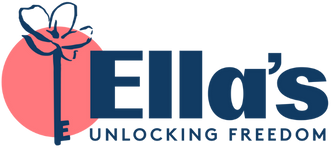Spot the signs
…and you could save a life.
Trafficking is a global crime affecting nearly 50 million people a year. For traffickers, it’s a lucrative business. For women, children and men trapped in slavery, it’s devastating. And it must be stopped.
Trafficking and modern slavery can be hidden in plain sight: houses, flats, factories, car washes, building sites…places in your neighbourhood that you might walk past every day. Here are some quick tips to help you spot the signs, and what to do if you have concerns.
What to look out for
People constantly guarded or accompanied by others when outside
Indicators of physical or mental abuse, such as cuts and bruises that go untreated, visible anxiety and nervousness of speaking to other people
Debt, and limited or no access to money even though they may seem to be earning it
People regularly displaying limited movements eg leaving a house, visiting a shop, returning and not seem to be doing much else
People isolated from their local community and service providers
People who are frequently seen with an individual or group that they seem uncomfortable with
Houses/flats that seem to contain multiple people, especially women, with frequent comings and goings. There may be other signs that something’s not quite right with a property, eg a letterbox sealed from the inside
Workers appearing to do long hours and lacking adequate equipment eg protective clothing, maybe ‘led’ by one particular individual
Workers accompanied to and from work places in groups
Lack of passport and other legal documents
Group of workers/individuals of a similar nationality/age/gender who seem to have a leader of representative
People sleeping where they work
One of the British survivors that we were working with has listed additional signs. "We need to make room for a variety of narratives and become comfortable with the discomfort and closeness of the issue. It is important not to make assumptions about anything or anyone", she said.
Here's what she suggests looking out for:
Could we enter into our work places with the assumption that someone is possibly a victim of some sort of abuse?
Could we open our eyes to our colleagues and friends. Is there someone who keeps a lot to themselves? Who seems to always be engaged in something outside of working hours? Does that person have a lot of absences from work or health issues?
Do we notice anyone who seems hyper aware of their surroundings or who is easily startled, struggles to maintain eye contact or appears to have very low self esteem?
Is there someone in our path that seems to look tired or unwell or is working hard to conceal tiredness, brain fog, lack of concentration?
Do we know anyone who doesn’t have a fixed address?
Statistics show that eating disorders and sexual abuse are closely linked. Are GPs and medical professionals willing to ask difficult questions?
Who is renting or living around us. Can landlords be vigilant about tenants, can neighbours take note of landlords and anything that feels off?
Survivors of trafficking move freely among us. They aren’t always locked away or constantly accompanied. The chains that imprison a lot of people are mental and the result of years of grooming.
What if we could look at the people around us who are closest to us and actually build a picture.
If someone would have taken note of the times I wet myself in school, the lack of concentration and the obsession I had with food and asked questions could my abuse have been stopped earlier?
If someone would have asked difficult questions about the root cause of my eating disorder instead of referring me to a clinic to gain weight, might I have felt I could tell my secrets?
If someone would have allowed me to see the school counsellor when I put my name in the referral box instead of telling me that the service was only for under privileged students from families less fortunate than mine, could I have been spared 13 further years of abuse and exploitation?
Colleagues and friends never got suspicious of the friend who always listened but rarely offered personal information. The friend who rarely joined on a night out.
What to do
If you have concerns, or if you’re aware of someone who might have been trafficked or exploited, don’t wait to act. You’re highly unlikely to get a victim into trouble if you take action. Rather, you could save their life.
If there is immediate danger, call or text 999.
To report a concern, or if you are affected by these issues, call the Modern Slavery Helpline on 0800 0121 700.
If you know or are an adult survivor who needs urgent help, you can call the Salvation Army on 0800 808 3733.
For more in-depth information on spotting the signs of trafficking and different types of exploitation, visit StopTheTraffik.
If you're a survivor or a frontline worker and would like more info on how to refer yourself or someone else to Ella's, email referrals@ellas.org.uk
Again, please do something if you think you come across someone affected by trafficking and exploitation. Anything you do is highly unlikely to get them into trouble, and it might just save their life.
Trafficking and modern must be stopped. Spot the signs, report your concerns and you could save a life. Photo: Tom Price/Ella’s.


